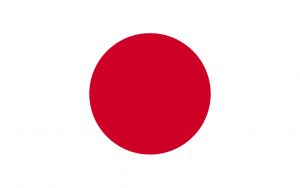 The Translation People’s services are respected globally for accuracy, tight turnaround times and our experience with a variety technical translation media. Our English to Japanese translation expertise covers, but is not limited to; technical specifications, user and maintenance manuals, quality procedures, product catalogues and websites & press releases.
The Translation People’s services are respected globally for accuracy, tight turnaround times and our experience with a variety technical translation media. Our English to Japanese translation expertise covers, but is not limited to; technical specifications, user and maintenance manuals, quality procedures, product catalogues and websites & press releases.
If you have a project that requires Japanese translation, please request a quote or contact us now.
Japanese – Did you know?
Japanese has approximately 125 million speakers worldwide although very few of these people live outside of Japan. Hyõjungo (standard Japanese) is understood by the majority of the population but there are a number of local, rural dialects which even native Japanese people find difficult to understand.
The origin of Japanese is constantly disputed. Some suggest it is related to Altaic languages such as Turkish and Mongolian whilst grammatically it is similar to the Korean language. Written Japanese is heavily influenced by Chinese characters, but linguistically the two languages are very different.
Initially Japanese had no writing structure; any written text used characters borrowed from Classical Chinese. The modern Japanese Language is written with three different ‘alphabets’ or character sets called Kanji, Hiragana and Katakana. However, Roman letters, English script and non-Japanese words written in their own lettering also appear in the modern written language. Japanese text can be written both horizontally, as we would write in English and vertically, in columns from right to left. Indisputably, Japanese has one of the most complex writing systems in the world.
In addition to the various character sets there are several levels of politeness in Japanese. Honorific or keigo, is the general term to describe the three main categories sonkeigo, kensogo and kenjõgo, or respectful, humble and polite. Within these different groups verb endings alter and expressions or words can change completely. It can be exceedingly difficult for even the natives to grasp these various nuances and even the Japanese have to practise extensively to get it 100% right.
All our Japanese translators are native speakers with years of practise; our project managers are on hand to discuss your Japanese translation needs and to ensure that the tone and style are appropriate to your readership.
Why use us?
- Translations can be provided in any format including the Microsoft Office suite, Adobe FrameMaker, Quark XPress, Adobe PDF, Adobe Illustrator, InterLeaf and PageMaker.
- Our use of translation memory software can reduce lead times and costs of your English to Japanese translation.
- All our translators have at least five years professional translation experience and undergo a rigorous selection procedure.
- Our English to Japanese translators are professionally qualified linguists and translate exclusively into their native language.
- Our English/Japanese translations are produced by our translation experts in a range of fields, including technical, pharmaceutical, legal and financial.
English to Japanese Translation
| English | Japanese | Pronunciation |
| Hello | こんにちは | konnichiwa |
| Good morning | おはようございます | o-hayou gozai masu |
| Good Afternoon | こんにちは | konnichiwa |
| Good night | おやすみ/おやすみなさい | oyasumi / oyasuminasai |
| Goodbye | さようなら | sayounara |
